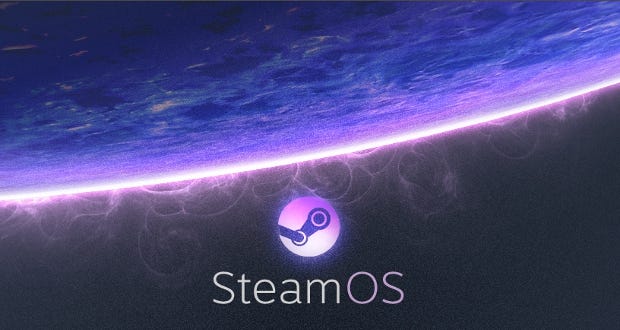Valve Talks SteamOS And Diretide, Defends Communication
Communication Breakdown?
Valve is a strange company. The mega-dev has always paddled against the inundating current of conventional wisdom, but it gets especially odd when it defies its own internal logic. Oh yeah, also infuriating. As we've observed on multiple occasions, the house that Newell built is often extremely open, responsive, and communicative... except when it's really, really not. Half-Life 3, a recent bout of (still-unexplained) layoffs, Diretide, etc. These lapses don't make Valve a Bad Guy or anything, but they do strain the developer's relationship with its 65-million-strong audience. It's an odd dichotomy that's more relevant than ever with the evolution of Steam Machines and SteamOS apparently in the community's hands. So I decided to ask Valve a simple question: What gives?
RPS: So the general plan for the future of SteamOS and Steam Machines is to listen to community feedback and evolve them from there. How hands-on is that process for you? How often are you in direct communication with users?
Jan-Peter Ewert, business development: We don't really ask. It's more that they tell us. Literally, I've seen [Valve] people pick up a magazine article with pros and cons and go, "OK, we have to address those cons." More often than that, it's our customers. We read our own forums. They complain to each other, and we try to fix that.
RPS: And it does often seem like Valve is listening - at least, from a distance. But it doesn't feel like a two-way street. Even if you're always listening, you don't respond much, and in some cases the lack of direct communication leaves your community in the dark. DOTA 2's Diretide event is the most recent example. While you ultimately gave fans another Diretide, they spent days angry when Valve opted not to respond initially, assuming you just didn't care. Valve could've informed fans that there wouldn't be a Diretide event when the decision to forgo it was originally made, too. I mean, I appreciate good surprises and all, but only when they're not, you know, bad. Why not let fans see what's going on behind-the-scenes just a little more?
Jan-Peter Ewert: I don't think there is a lot of improvement to be made there. The thing is, if you feel something is wrong and your customers tell you something should be fixed, the right response is to fix it - not to tell them, "Yeah, at some point in time we'll fix it." Because that's expectation. And if you're ultimately not able to fix it, then that only makes people even more angry.
So I think the right response around SteamOS or anything we do will be what we did with Diretide, which is to bring out the thing people want [if it works out behind-the-scenes], not just tell them we'll fix it.
Jeff Cain, business development: Reactions start even if people don't hear anything. We're listening. Things happen.
RPS: But especially in those cases, is it really so difficult to say, "Hey, we're working on this. It might not end up being super successful, and we might not release it, but we're trying"? I think gamers are warming to that mentality, especially now that crowdfunding has made open development so popular. Not that Valve should go fully open, but maybe just keep people in the loop a bit better.
Louis Barinaga, hardware engineer: So hardware-wise, at least in the hardware betas, there's a lot of that going back-and-forth. That's all I can speak to, though.
Jeff Cain: I just think people would rather see action. They don't necessarily care if we tell them we're working on something so much as they see the results.
RPS: Again, though, what about reactions to things like Half-Life - a third episode of which you told them to expect years ago - and Diretide and even your recent round of lay-offs? People clearly care, and they get upset when they're rewarded with total silence. It gives a general impression that Valve is listening except when you're really not. It makes the proposition of offering feedback less appealing.
Jan-Peter Ewert: Well, I think those are different things. When it comes to people, we will not discuss them. We will not stand in their way or [air their dirty laundry]. When it comes to hardware or software, I think we do talk to our community. We read our forums and we post in our forums.
So should there be a big PR announcement around everything? We don't have a huge PR department. Everyone at Valve deals with issues [individually] as they come up. Whether it's one of us reading a blog post, knowing he's working on that, and answering a forum post or people just doubling down on finishing something [in reaction to said blog post], it's obvious we'll always try to make the right choice.
[Event staff motions that time's up.]
RPS: Thank you for your time.










